BBC documentary filming at the IUL
- News
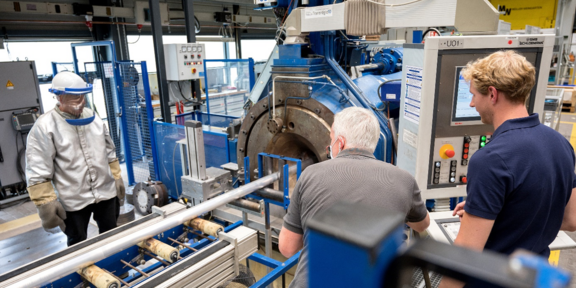
The further development of the process of chip extrusion for direct recycling of aluminum for the production of sheets and components such as cups is part of a DFG research project at the IUL. An editor of the BBC (British Broadcasting Corporation) took notice of the IUL's work in an exchange with British research colleagues and has now filmed the process for a documentary on the subject of reducing greenhouse gas emissions.
During the filming, the individual process steps for direct recycling of aluminum chips were explained and demonstrated. The aluminum chips are first compacted into a chip-based billets and then directly processed: An open profile is produced by hot extrusion, which is then flattened to a sheet. Finally, products such as bent components or deep-drawn cups can be made from the sheets. The formability and mechanical properties of the recycled aluminum products are up to 95 percent of the quality of conventionally produced products. For many applications this is perfectly adequate. The advantage of direct aluminum recycling is that it saves the energy-intensive remelting process, which is also comes along with material losses.
The footage taken by the BBC is to become part of a new documentary on reducing CO2 emissions. Direct recycling of aluminum chips is not fundamentally new, as the patent originally dates back to 1945, and research on the chip extrusion process has been done at the IUL since 2008. The process has been fundamentally investigated to continuously increase the quality of the profiles. As a result, three DFG projects have already been obtained and two dissertations have been written on this topic. The research work at the IUL can make an important contribution to bringing direct aluminium recycling into industrial application.
Contact: André Schulze
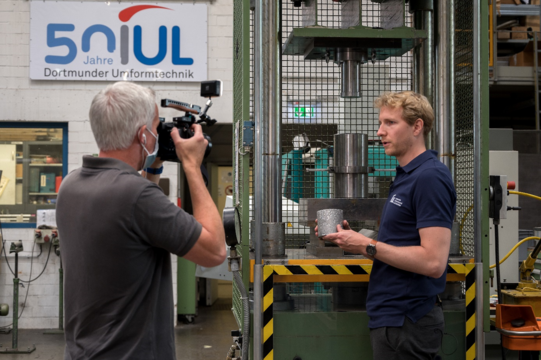



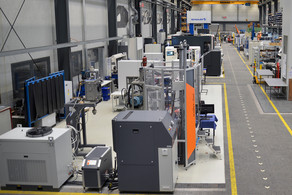
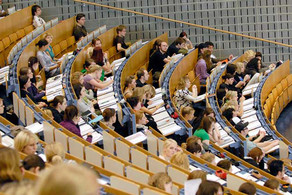
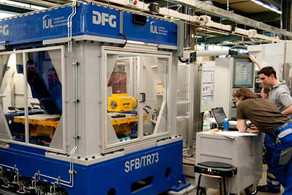
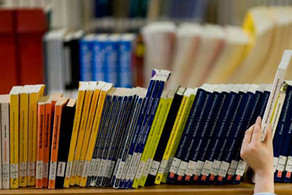
![[Translate to English:] [Translate to English:]](/storages/iul-mb/_processed_/c/d/csm_Forschung3_2880x640_patrick_961587f317.png)